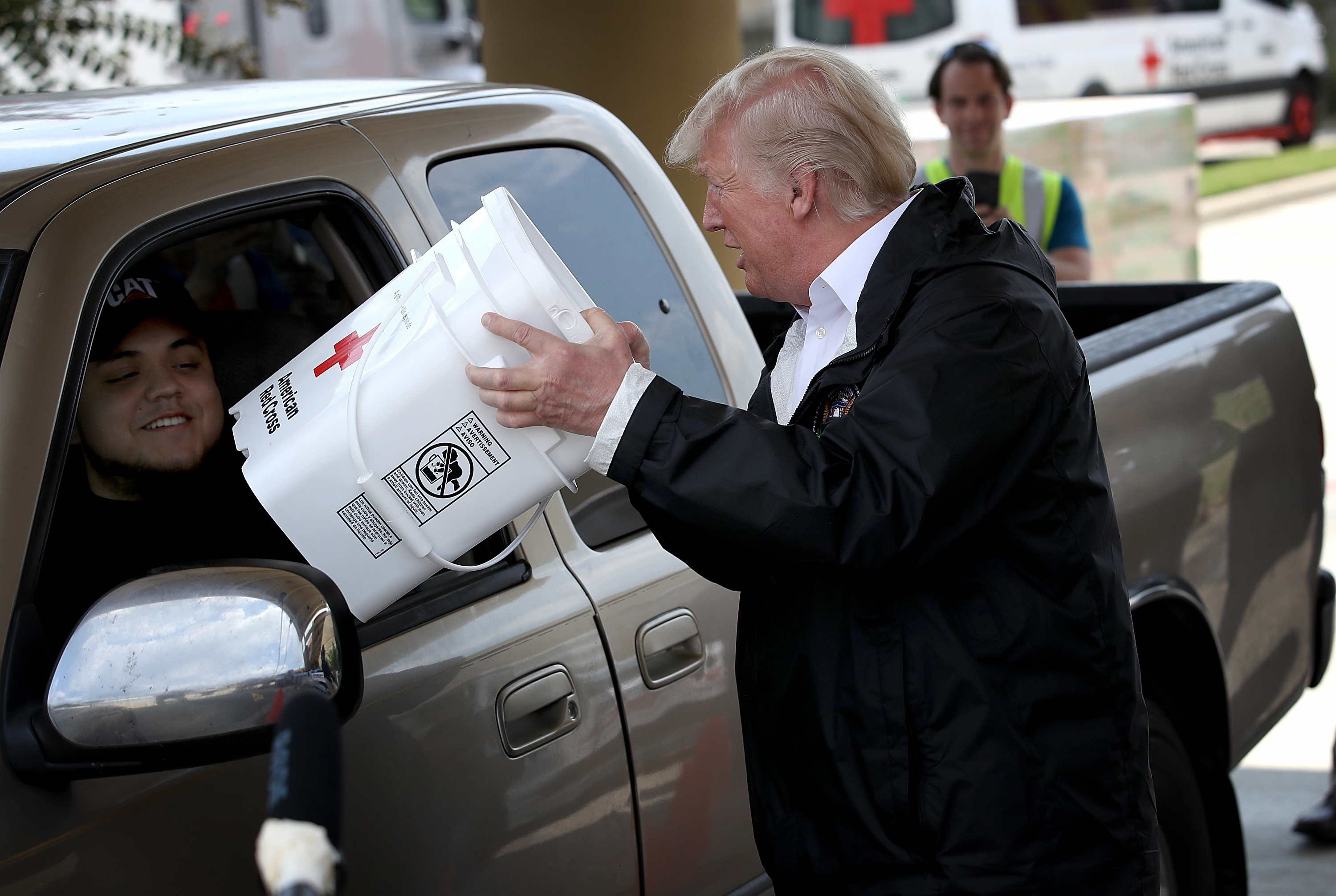Will global warming make hurricanes worse?
It’s a disturbing sign of our times that such a simple question can trigger a political storm—especially because the answer will save lives and money. A possible link between global warming and hurricanes is important because its affects people, not because it proves an ideological point.
Nevertheless, Trump administration spokespeople have sidestepped questions on the subject and criticized the media for asking the question about Hurricane Harvey during the peak of the flooding. A few days later, as Hurricane Irma ramped up to record-setting intensity, Rush Limbaugh fueled dangerous weather conspiracy theories, claiming that federal scientists exaggerate hurricane threats, and that media and businesses profit from hyped-up hurricane coverage.
Given today’s political bubble world, it’s easy to see how Limbaugh’s claims could reinforce skepticism in parts of the population already prone to sharing viral fake weather news, like short video clips of a tornado in the Midwest being passed off as scenes from a Caribbean island, and fake maps suggesting that another hurricane is steering toward Houston. It would be laughable if it weren’t a matter of life and death for all the people in the path of today’s hurricanes, plus the storms to come in the decades ahead.
Political Malpractice
The United States has some of the best scientific facilities, data, and climate scientists in the world. And for every politician who tells you incorrectly that there’s no link between global warming and hurricanes, there are at least three researchers saying that we need to prepare for the fact that the strongest hurricanes will become more intense and will probably—like Harvey—start to produce unprecedented amounts of rain.
If we act now, we can save lives, property, and communities. A recent analysis by the World Resources Institute shows that every $1 invested in protective measures up front can save $4 in damages from future floods and storms.
That’s the type of information that can help communities decide whether and how they should rebuild after a storm. Yet the Trump administration is hindering efforts to learn more, proposing cuts to global warming research and censoring scientists who study climate change. Environmental justice advocates say that the attacks on science represent irresponsible political malpractice against the people of the U.S. by officials who are sworn to uphold the public interest. In some countries, elected politicians have been jailed for such actions: In France, the mayor of a coastal resort town was sentenced to four years in jail for hiding deadly flood risks, and, a few years earlier, the mayor of Chamonix was convicted of second-degree murder for failing to evacuate chalets on an avalanche-prone mountainside in time to prevent fatalities.

(Photo: Win McNamee/Getty Images)
More broadly in Europe, governments are being held accountable for climate impacts. In Austria, a high court blocked construction of a new airport runway (later reversed) partly because of the greenhouse gas targets of the Paris climate agreement. And, in the Netherlands, a court ordered the government to cut greenhouse gas emissions by 25 percent by 2020 to protect citizens from climate change.
It’s an Existential Question
There isn’t likely to be much in the way of progressive climate policy in laissez-faire Texas, but the question of whether global warming intensifies hurricanes will certainly come up in the Caribbean island nations currently being devastated by the 185 mph winds of Category 5 Hurricane Irma, which has already set several records for wind and tropical storm energy.
The earliest reports from Barbuda indicate that 90 percent of the houses on the small island were destroyed by the storm, an unsustainable level of damage, according to Carl-Friedrich Schleussner, a researcher with Climate Analytics who helps island nations prepare for climate change impacts.
Schleussner says that, when Hurricane Ivan hit Granada in 2004, it caused twice as much damage as the country’s gross domestic product, beyond the limit of what the country could even adapt to.
“For some of these communities, it’s a matter of survival. It’s an existential question,” Schleussner says of the hurricanes.
Knowing how global warming affects hurricanes will also have benefits for rich countries. If hurricanes like Irma, currently aiming for Miami, are going to become more frequent, it’s likely to affect property values, and that will have a ripple effect throughout a regional economy that’s partly based on an explosive construction boom.
At some point, Schleussner says, people will have to ask themselves: “Do we rebuild or abandon?”





